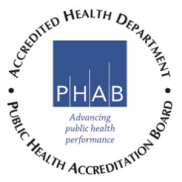The Vaccines for Children (VFC) Program provides all routine vaccines recommended by the Advisory Committee on Immunization Practices (ACIP) at no cost to participating healthcare providers.
Birthing hospitals, newborn nurseries, and Neonatal Intensive Care Units (NICUs) may enroll in the VFC Program as “Specialty Provider.”
Specialty Providers are providers who offer limited care in specialized environment or for specific age group within the general population of children ages 0-18 years (e.g., pharmacy or urgent cares offering just influenza and/or COVID-19 vaccines or birthing hospitals offering only Nirsevimab and hepatitis B vaccination birth dose.)

Birthing hospitals play a critical role in ensuring newborns are protected against respiratory syncytial virus (RSV). Children who are publicly insured and uninsured (versus privately insured) have higher odds of missing well-child visits. Administering RSV vaccination in the birthing hospital before discharge is a critical way of ensuring protection against RSV infection for uninsured or underinsured infants who may be less likely to have a well-child visit within the first week of life, especially for newborns who have had prolonged hospitalizations related to prematurity or other causes.
Birthing institution participation:
- Ensures equitable access to immunizations.
As vaccines and vaccine-like products that are included in the VFC program may be cost-prohibitive for families who do not have commercial insurance coverage, birthing institution participation in the VFC program is critical to ensuring equitable access to these products. - Saves money for hospitals.
The VFC program reduces financial burden by providing HBV vaccines and Nirsevimab at no cost for VFC-eligible newborns. Although the payment for Nirsevimab purchase and administration may be bundled in negotiated insurance payments, participation in the VFC program ensures equitable access to these important immunizations while reducing up-front costs for birthing institutions. - Protects newborns at the first opportunity.
The ACIP recommends that the first dose of HBV vaccine be given within the first 12 hours of life and that one dose of Nirsevimab be given within the first week of life during the RSV season. Providing Nirsevimab prior to hospital discharge ensures newborns are protected at the first available opportunity and prior to exposure to RSV in the community. - Save lives and reduces the burden on the healthcare system.
Each year in the U.S., RSV causes approximately 58,000-80,000 hospitalizations, and 100-500 deaths in children under 5 years of age.3 Early estimates indicate Nirsevimab is 90% effective at preventing RSV hospital admissions in infants with a median time from receipt to symptom onset of 45 days,4 making it likely that the preventative antibody will reduce strain on the healthcare system during respiratory virus season. - To enroll in VFC or learn more about the VFC Requirements:
- Contact the VFC Coordinator at (501) 661-2170.
- Complete the VFC electronic provider enrollment in WebIZ (AR Immunization Information System).
- For more information contact the VFC Coordinator at (501) 537-8969.
Resources
- Vaccines for Children
- CDC Vaccine Price List
- Vaccines Provided by the VFC Program
- Association of Immunization Managers (AIM)
- Advisory Committee on Immunization Practices (ACIP)
- You Call the Shots – VFC Program Training
- Filing VAERS Reports
- State & Territorial Health Department
- Resources to Promote the VFC Program
- VFC Operations Guide


